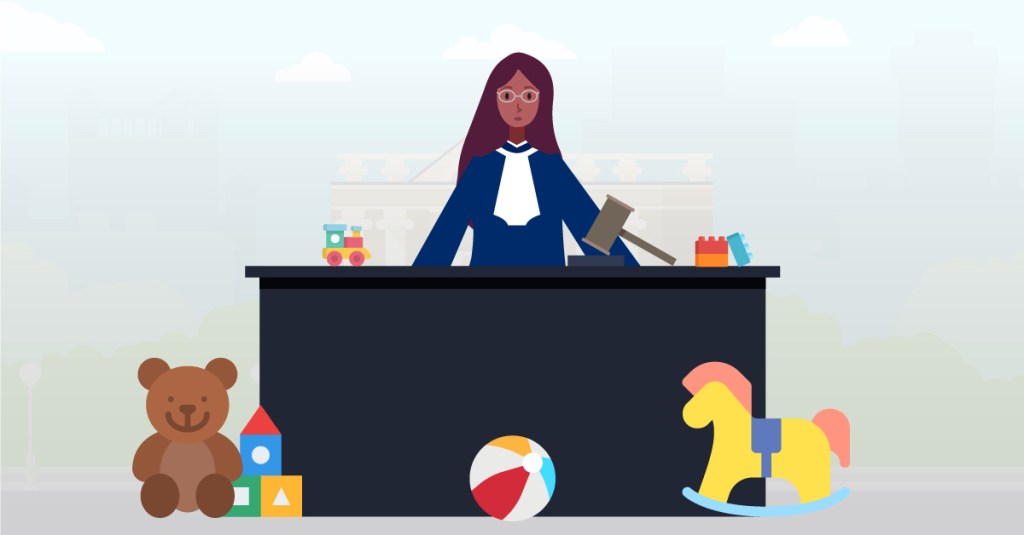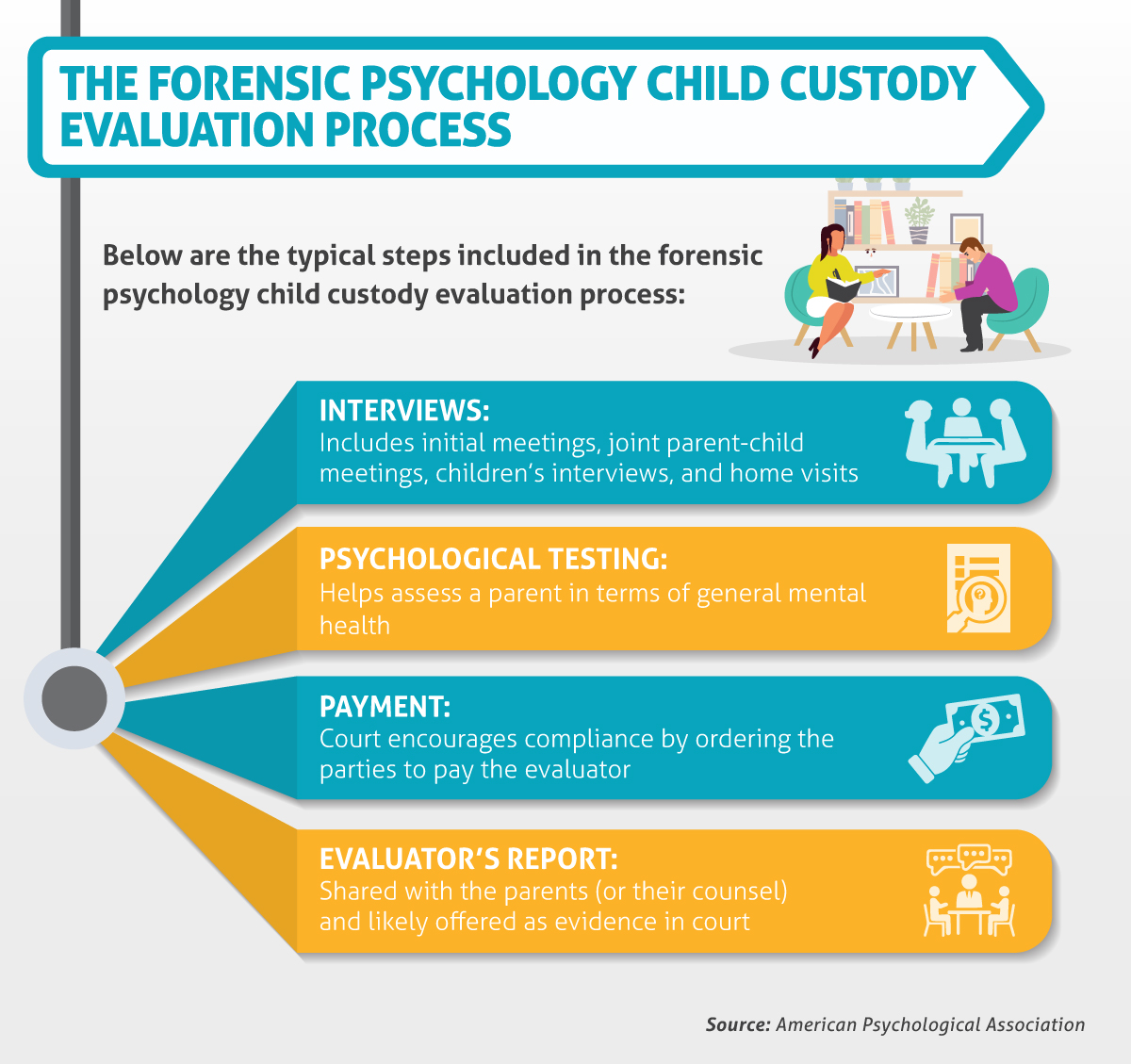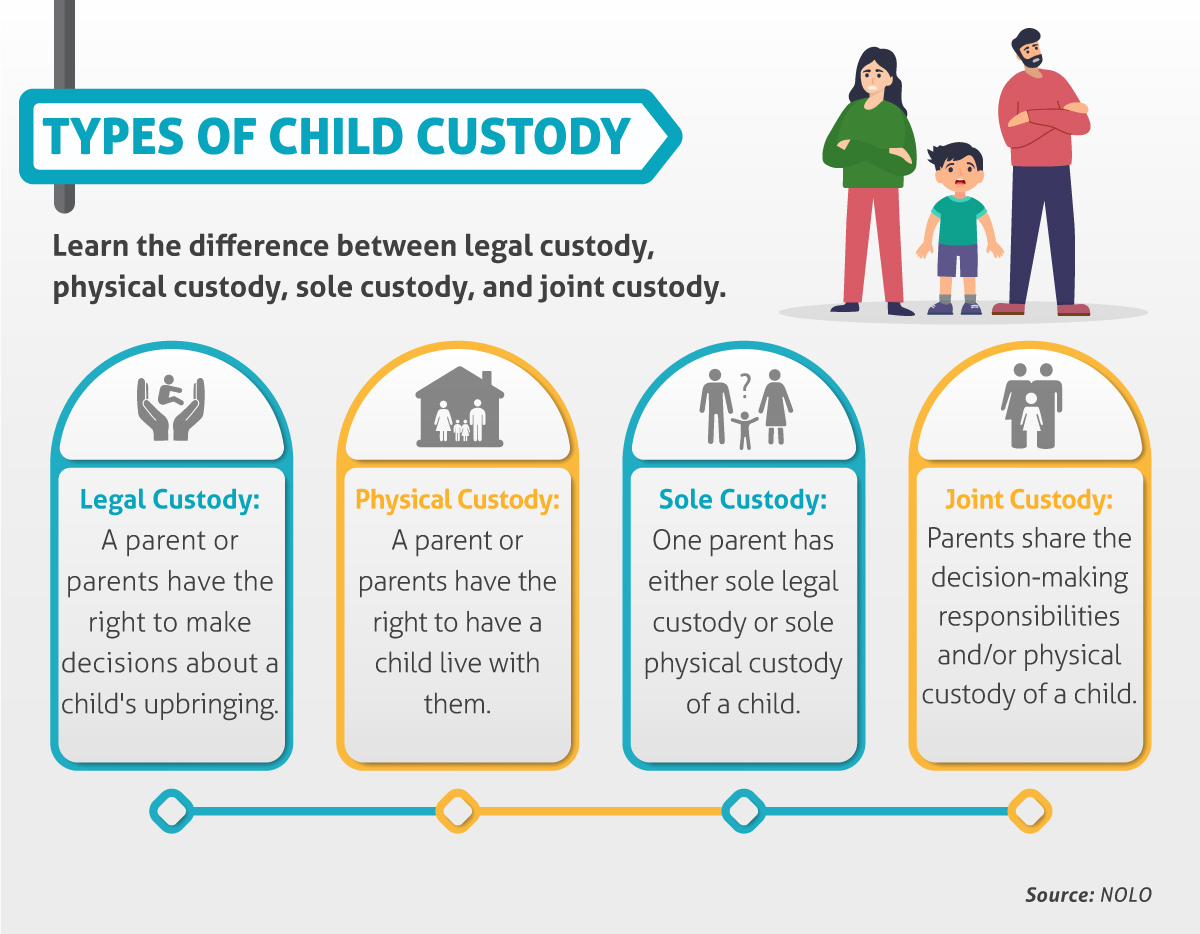What Do Judges Look for in Child Custody Cases? The Role of a Forensic Psychologist in Child Custody Cases


Making the right decision in a custody case is crucial to ensuring the child’s wellbeing. However, with limited time for arguments and each parent telling a different story, any bias on the court’s part may lead to a decision that is not in the best interest of the child, including placing them in a home where they are at risk of abuse or neglect.
Given these high stakes, in contentious cases judges may order a custody evaluation to be administered by a qualified expert such as a forensic child psychologist. Forensic psychologists are especially valuable in tough cases where grounds for full custody of a child are disputed or the fitness of a parent or guardian is in question. Their years of experience help judges come to a decision in the best interests of the child.
So, what do judges look for in child custody cases when deciding whom to award custody to? These are just a few of the complex issues the court must confront when adjudicating child custody cases:
- The age of the child
- The relationship between the child and each parent
- Where the child’s siblings live
- The mental and physical well-being of the parents
- The parents’ caretaking capacity
Factors That Judges Consider in Child Custody Cases
In general, judges favor shared custody arrangements and do not seek to unnecessarily deprive any parent or guardian of contact with their child. Judges are guided by the best interests of the child when making decisions on child custody.
Sometimes that decision is more straightforward than others. To illustrate the complex issues judges confront when adjudicating child custody cases, consider some of the factors they must consider.
Age of Child
Family law judges in the U.S. do not follow any across-the-board rules when it comes to age-appropriate custody planning. Most states are moving toward an approach centered on the best interests of the child at each developmental stage. However, some states have laws that designate a certain age at which children receive increased decision-making power in custody cases.
It is important to note that age is not necessarily correlated with development. However, some general guidelines exist.
- For children ages 0 to 2, who are in the sensorimotor stage, according to Jean Piaget’s theory of cognitive development, maintaining the bond between the child and each parent is prioritized. Visitations should be frequent and time away from either parent should be minimized.
- Children ages 3 to 7, in the preoperational stage, are better able to tolerate separation, but they continue to need consistency, structure, and frequent contact with both parents.
- Preteens ages 8 to 11, in the concrete operational stage of development, will typically respond well both to spending some time away from either parent and frequent visitation. Depending on school and extracurricular activities and the child’s preference, spending more time with one parent than the other may be a better fit.
- Children age 12 and into adulthood, in the , are usually independent and seeking an identity outside of their parents. Judges encourage parents to be flexible, listen to older children’s needs, and solicit their input when establishing a custody schedule.
Relationship Between Child and Each Parent
Here again, when it comes to assessing the relationship between the child and each parent, no strict rules exist, only guidelines. Judges are responsible for evaluating the quality of the relationships. If a child has a strong attachment to one parent to the point where separation causes distress, a judge may agree to a disproportionate physical custody arrangement favoring that parent. But, if a forensic child psychologist or other mental health professional deems that attachment detrimental to the child’s best interests, more frequent custody exchanges in conjunction with family therapy may be ordered.
Older children who are able to express a preference for one parent over the other can also influence the court. A child who is vocally opposed to living with one parent is certainly a powerful witness. Still, a parent must demonstrate that they are able to create and sustain an emotional and physical environment where their child can thrive. A child’s preference is not the only factor weighing on the court’s mind.
Location of Child’s Siblings
Courts usually try to keep siblings together. When parents wish to separate siblings in a custody agreement, they must present a strong case to the court that centers on the children’s best interests. However, in some cases the court may take it upon itself to separate siblings.
If the safety of a child is in question — for instance, if a sibling is bullying or abusing the child — a judge may order a separate custody arrangement for siblings if one parent is better equipped than the other to meet the abused child’s needs. A psychologist or other mental health professional will likely be consulted in such cases.
The preference of the child may also compel a judge to separate the child from their siblings, particularly in the case of older children who have more difficulty getting along with one parent than the other. Judges will not assign custody solely due to preference, but if it can be established that one home is better for the child’s well-being than the other, the court will allow it.
Mental and Physical Well-Being of Parents
Parents’ mental well-being is of great concern to a judge in a child custody case. Psychological disorders, overwhelming stress, drug or alcohol abuse, and mental health crises can prevent a parent from acting in their child’s best interests. Judges may order parents to seek therapy or attend counseling as part of a parenting plan. More punitive measures, such as mandatory drug testing and monitored visitation, may be ordered in cases where a parent’s capacity to safely care for their child is in question.
Judges also look at a parent’s relationships with other adults, including their nonmarital sexual relationships. Having sexual partners present while their child is in the home or keeping company with criminals can land a parent under court scrutiny. A judge may order a parenting plan that restricts contact with certain adults when the child is in the parent’s custody.
A parent’s physical well-being is important to the court as well. Untreated health problems can impact a parent’s ability to care for a child on their own. Disabilities can also affect whether or not sole physical custody is appropriate. Here, family support can provide a mitigating factor.
Parents’ Caretaking Capacity
Judges consider whether each parent has the capacity to abide by a parenting plan when making child custody decisions. Income is considered, as well as availability and family support. Grandparents or other relatives who can help financially or share child care responsibilities bolster a parent’s case for sole or primary custody, especially if the other parent does not have that support.
Except when it is proven not to be in the child’s best interests, the court works with parents to maximize their time with their children. For example, if a parent has a job that makes them unable to pick a child up from school and family support is unavailable, partial physical custody can be awarded during the summer months. The child would reside primarily with the parent best able to meet their needs during the majority of the year.
What Does a Forensic Psychologist Do in Child Custody Cases?
Forensic psychology is . In family law, a forensic psychologist can work as a custody evaluator appointed by the court, or as an independent consultant for one of the parties in a divorce case.
Forensic psychologists have comprehensive, hands-on training in clinical psychology. In addition to completing a four-year college degree, they must earn a master’s, usually in a related field, and a doctoral degree (PsyD or PhD). This process can take six years or longer.
After finishing a doctoral degree, an aspiring forensic psychologist must obtain state licensure, which requires a number of supervised clinical hours and an exam. However, depending on where a practitioner lives, further education may be needed to become a child custody evaluator. To become an independent consultant, establishing a reputation and networking among family law attorneys will suffice, though obtaining training specific to custody and child matters would be advisable.
What does a forensic psychologist do in child custody cases, as an evaluator or a consultant? Read on for a rundown.
Child Custody Evaluator
The rules vary from state to state, but to be eligible for court appointment as a child custody evaluator, a forensic psychologist must have several years of postgraduate experience diagnosing and treating mental disorders. Additional training may be required in custody and child development, depending on the jurisdiction.
Other mental health providers can serve as custody evaluators, but forensic psychologists are usually called in for complex cases, such as when claims of child abuse or drug addiction arise in custody cases and the veracity of either parent is in question. They use investigatory techniques, psychological evaluations, examinations, and scientific rigor to discern the best situation for the child.
Upon completing their evaluation, forensic psychologists carefully document their findings and provide them to the court for the judge’s consideration. The court may agree or disagree with the evaluator’s report, but their opinion is entered into the record as part of the court proceedings.
Psychological Consultant
In addition to serving as child custody evaluators, forensic psychologists may work privately as consultants on custody cases. As a consultant, forensic psychologists may perform psychological testing and analysis, or they might advise clients on the best interests of their child.
Being a psychological consultant for a family law attorney can also involve other responsibilities, such as:
- Assisting attorneys in preparing depositions
- Reviewing cross-examination questions
- Helping clients prepare for their custody evaluation
- Creating developmentally appropriate parenting plans
- Testifying in court regarding new research or best practices
The Importance of Forensic Psychology Child Custody Evaluations
Forensic psychology child custody evaluations involve in-depth psychological analysis of the relationship between a child and each of their parents. A forensic psychologist or other licensed mental health professional will use direct and indirect methods to obtain information, investigating family dynamics, assessing school performance, and conducting interviews with siblings to gather data.
When a custody evaluation calls for psychological tests, forensic psychologists consider which tests will be developmentally, culturally, and linguistically appropriate in a given situation, and fully disclose a test’s limitations when offering results.
When interviewing children and family members, forensic psychologists must work to identify abuse and educate victims’ parents on how to safeguard children against it. If abuse is suspected, forensic psychologists are legally required to alert the court.
Forensic psychologists concerned about a child’s well-being in high-conflict custody situations must initiate timely and inclusive evaluations, interventions, and court actions with the goal of repairing and healing parent-child relationships.
Forensic psychology child custody evaluations are rigorous, methodical, and evidence-based.
Forensic psychologists consider data in context, relying on their professional ethics and experience to guide them in making — or declining to make — recommendations in a child custody case.

Learn the difference between legal custody, physical custody, sole custody, and joint custody. Legal custody means that a parent or parents have the right to make decisions about a child’s upbringing. Physical custody means that a parent or parents have the right to have a child live with them. Sole custody means that one parent has either sole legal custody or sole physical custody of a child. Joint custody means that parents share the decision-making responsibilities and/or physical custody of a child.
How Long Does a Child Custody Evaluation Take?
Parents at the beginning of this process and eager for resolution may be asking themselves, just how long does a child custody evaluation take? There is no easy answer. The length of a custody evaluation varies depending on the state, situation, and level of urgency.
For example, some jurisdictions restrict the scope of an evaluation, which speeds up the process. Other jurisdictions allow for what are referred to as partial or limited-scope custody evaluations. These evaluations are focused on certain issues or complaints, and they do not include full psychological testing, though basic tests may be administered. If a partial child custody evaluation is ordered, it will take less time than a full evaluation by a forensic psychologist.
Forensic evaluations by their nature require time. The process of gathering information, conducting interviews, interpreting data, and rendering an assessment can last anywhere from three to five months.
The forensic evaluation process includes the following steps:
- Interviews of parents and children, including meetings and home visits
- Psychological testing of parents
- Payment to the evaluator
- Delivery of the evaluator’s report
A forensic psychologist’s report does not always include a recommendation on custody. When they do make recommendations, they must be supported by solid psychological evidence and focused on supporting the best interests of the child.
How Can a Mother Lose Custody of Her Child? Common Reasons in Custody Cases
Despite the stereotype of mothers as perfect caregivers, full custody being awarded to the mother upon divorce is no longer a given. These days, mothers can lose custody or visitation rights just as easily as fathers.
Most custody cases are resolved without the need for court intervention. Typically, the parents are able to come to an agreement on their own regarding what is best for the child, and a parenting plan is then established and entered into the record. In other cases, the court must lend its resources to finding a resolution.
These are a few of the common reasons that disputes in custody arise, including some that might lead to a mother, or any parent, losing custody of their child.
1. Child Abuse, Sexual Abuse, or Neglect
Child abuse encompasses a number of ways parents can cause harm to their children. Physical abuse is the most obvious, but psychological abuse can be just as, if not more, impactful over the long term. Seemingly minor psychic distress from an adult perspective can feel like world-ending trauma from the viewpoint of a child.
No matter the form of abuse, growing up in a violent or cruel environment is not something children easily overcome. If physical or psychological abuse is suspected on the part of a custodial parent, the other parent will likely be ordered to take custody of the child.
This is also the case if a parent or relative is sexually abusing the child, or if the child’s basic needs are not being met. When physical custody is shared, each parent is responsible for feeding, clothing, and providing for the safety and security of their child when the child is in their care. A parent who allows any of those responsibilities to lapse is liable to have their custodial privileges revoked or modified.
2. Mental Illness or Substance Abuse
Parents who have mental illnesses or substance abuse disorders are not automatically disqualified from custody. Whether or not these struggles interfere with a parent’s ability to care for their child is what a court will consider when deciding custody.
Judges can use the custody evaluation process to obtain information about how a parent’s mental illness or substance abuse is affecting their child. They can also appoint what is known as a guardian ad litem, an attorney charged with representing the child and their best interests. This attorney can meet with the child alone and in the presence of their parents, gleaning important information about the child’s parental relationships and state of mind.
3. Domestic Violence
If one parent makes a claim of domestic violence against the other, temporary restraining orders may be issued that complicate custody exchanges. A judge will not immediately terminate a custody arrangement based on domestic violence accusations, but they may order a relative to facilitate custody exchanges to abide by a protective order. Proven claims of domestic violence can lead to a loss of custody, depending on the state.
4. Parental Alienation Accusation
Tragically, counterclaims of parental alienation can leave parents who are victims of domestic violence facing a loss of custody. Gender bias against mothers who make claims of abuse against fathers means a mother faces a double bind when it comes to reporting. How can a mother lose custody of her child to her child’s abuser? The abuser successfully mounts an alienation defense.
Additional Resources: Benchmark Child Custody Cases
- Rivero v. Rivero, 125 Nev. 410 (2009): Established what constitutes joint physical custody and primary physical custody.
- Stanley v. Illinois, 405 U.S. 645 (1972): Landmark case established father’s rights in the event of the death of a custodial mother.
- Santosky v. Kramer, 455 U.S. 745 (1982): Established the enduring parental rights of unfit parents.

The typical steps in the forensic psychology child custody evaluation process include interviews of parents and children in meetings and home visits; psychological testing of parents to help assess general mental health; payment to the evaluator to encourage compliance; and the evaluator’s report, which is shared with the parents or their counsel and can be offered as evidence in court.
Grounds for Full Custody of Child: Common Reasons for Sole Custody Agreements
Full or sole custody and joint or partial custody are terms that can refer to either legal or physical custody. Legal custody refers to authority over decisions about the child and their upbringing, while physical custody refers to the location where the child resides. Because the two are separable, having sole legal custody and joint physical custody, or vice versa, is possible.
In most states, courts work toward shared custody that involves both parents, as long as it is in the best interests of the child. Abuse, neglect, and parental drug addiction may all provide grounds for full custody of a child.
Outside of extreme cases like these, however, courts are moving away from a sole custody model. Both parents play an important role in the psychological and emotional development of their child. Increasingly, judges acknowledge this by awarding joint legal and physical custody, though sometimes partial physical custody is appropriate.
In many cases, the parties adopt a hybrid custody arrangement. When the court awards sole or primary physical custody, the noncustodial parent can still have joint legal custody, giving them shared authority over child-rearing decisions. The court may also establish a visitation schedule, allowing the noncustodial parent time to continue bonding with their child.
Aside from the best interests of the child, other factors a judge may consider when determining custody include:
- A parent’s courtroom demeanor and dress
- The level of preparation by the parent
- Testimony from experts such as custody evaluators and educators
At What Age Does a Child Have a Say in Custody?
Many parents assume that older children choose which parent receives primary custody. While this does occur, it is situational, and is not the standard for most cases. State laws decide whether or not the court considers custodial preference, which makes it difficult to answer to the question, “At what age does a child have a say in custody?”
For example, in Georgia and West Virginia, courts allow children who are 14 or older to choose which parent they want to live with. Children age 14 and older in California can state a custodial preference under oath, but the court can override it if it isn’t in their best interests. In Alabama, the judge may consider the desires of the child if they are “of sufficient age and maturity,” and in New York, the court is interested in hearing the child’s preference, but reserves the right to make decisions based on what it sees as being in their best interests.
The Best Interests of the Child: An Upshot
In every decision the court makes in a child custody case, the best interests of the child are the guiding principle. Keeping this in mind can lessen some of the stress of undergoing forensic psychology child custody evaluations. Remember that everyone involved wants the same thing: a happy, healthy parent-child relationship. All parties going through the process can be helped by seeking comfort from loved ones, talking about what they are going through, and remembering that they are not alone when it comes to wrestling with difficult emotions. What judges look for in child custody cases are healthy parents who are capable of raising healthy children who go on to become healthy, capable adults.
Infographic Sources

